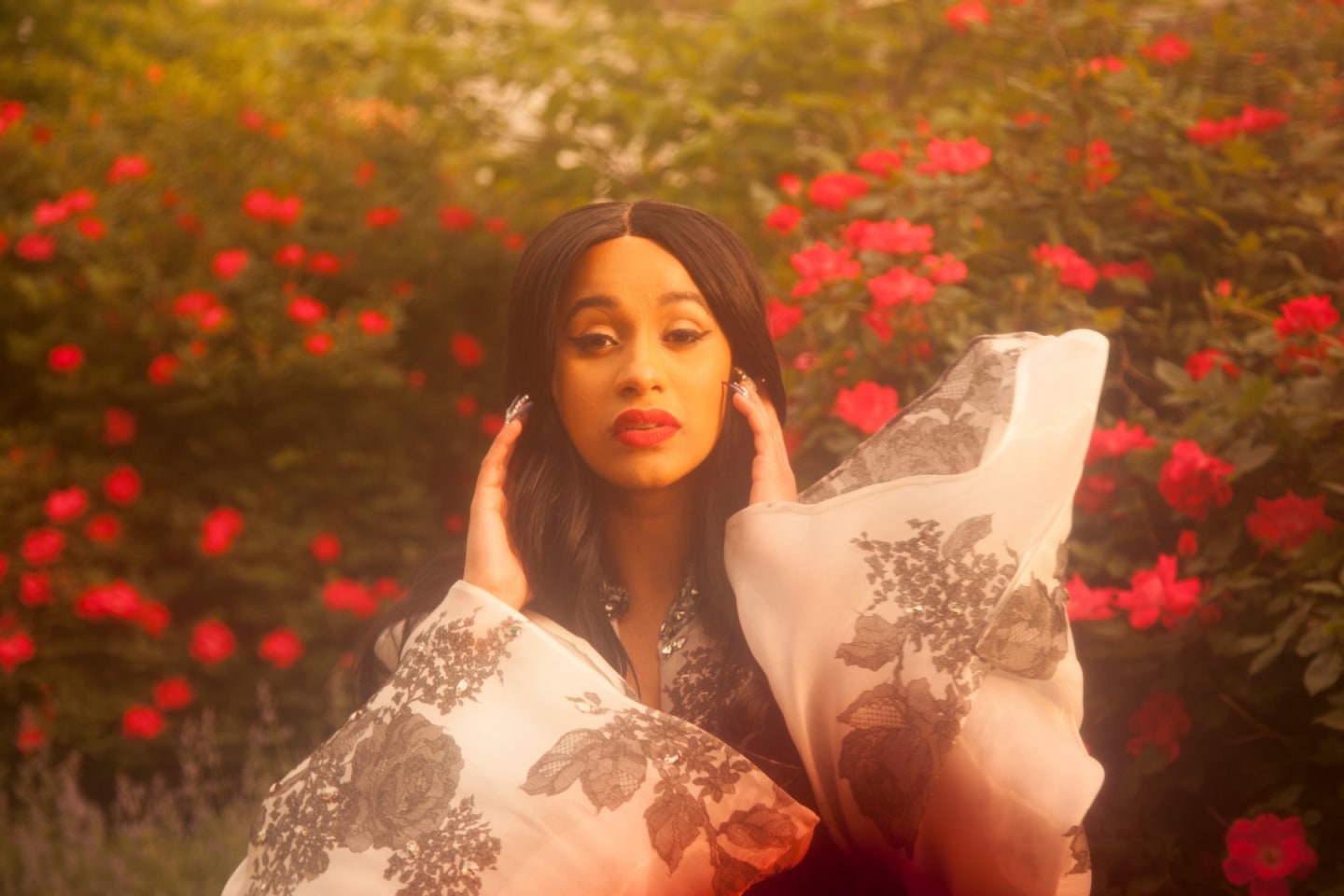 Samantha Casolari
Samantha Casolari
Cardi B never said she was perfect. The witty and forthright Bronx MC is beloved for the honest critiques she posts on social media, which make her a champion to many women — she was proof you could be a raw and unfiltered feminist. But some people wish she would have a more intersectional view without fully acknowledging her layers and identity. On Wednesday night, Cardi was put on the defense after Twitter user @WokeMutant fired off a thread in an attempt to call her out on colorism. He titled it: “Thread of Cardi B. calling dark-skinned black women roaches” and went on to list nine instances of her usage of the term to support his claim. Timelines flooded with mixed emotions — many people proclaimed that the rapper was “cancelled.”
To prove that she’s used the term in many contexts and not in a disparaging way to demean dark-skinned black women, Cardi reposted a video she originally uploaded after this year’s BET Awards where she said, “I went from a roach to a butterfly,” in reference to how quickly she’d evolved into an award-nominated rapper.
The user that posted the controversial thread is not a black man. There was a back and forth exchange about his racial identity, and the bearing of that on his ability to critique her. In a since-deleted, partly screen-shotted, clumsily handled exchange, Cardi questioned his authority to define the term "roach" as a derogatory term and challenge her blackness.
In the midst of the debacle, writer Myles Johnson (@HausMuva) presented a thoughtful thread that unpacked the “socio-political” responsibility that many folks have placed on Cardi. It’s a common phenomenon — a vocal public figure gains notoriety because of his/her/their subversiveness and then certain members of the public put them on a pedestal and expect them to stay there. Sure, Cardi B has expressed her own interpretations of feminism — her politics are inherently informed by her experiences as an empowered black Latinx woman. But it’s not fair to uphold her to a standard that she never committed to or established for herself. This doesn’t mean that artists like Cardi should be absolved of any wrongdoing, if they’re at fault — there should be criticism where criticism is due. However, we need to get better at recognizing that there is an ocean of difference between an artist's true identity and the one we create for them.
Clinging on to isolated facets of Cardi’s identity to craft her into a social activist idol is also self-serving. As Johnson seamlessly explained over two tweets, “If you stopped using black people as marketing/branding tools to authenticate your own blackness, you’d begin to engage in black people as human...and these dramatic cancellation moments wouldn’t be necessary. You’d be a) ready to teach b) ignore and still enjoy the art c) disengage.”
One thing we can’t say is that Cardi isn’t trying to grow. Over the course of her come-up, she has actively sought to understand the issues with some of her former language and views. During the Twitter upheaval, an older conversation resurfaced about her usage of a transphobic slur last year. After she was called out about it, she admitted that she didn’t know that it was wrong so she apologized and corrected her error. No matter the level of social consciousness, most humans are problematic in some capacity — we all navigate, and are scarred by, an immensely flawed and difficult society. So like us, Cardi B is still learning and unlearning, a lot.